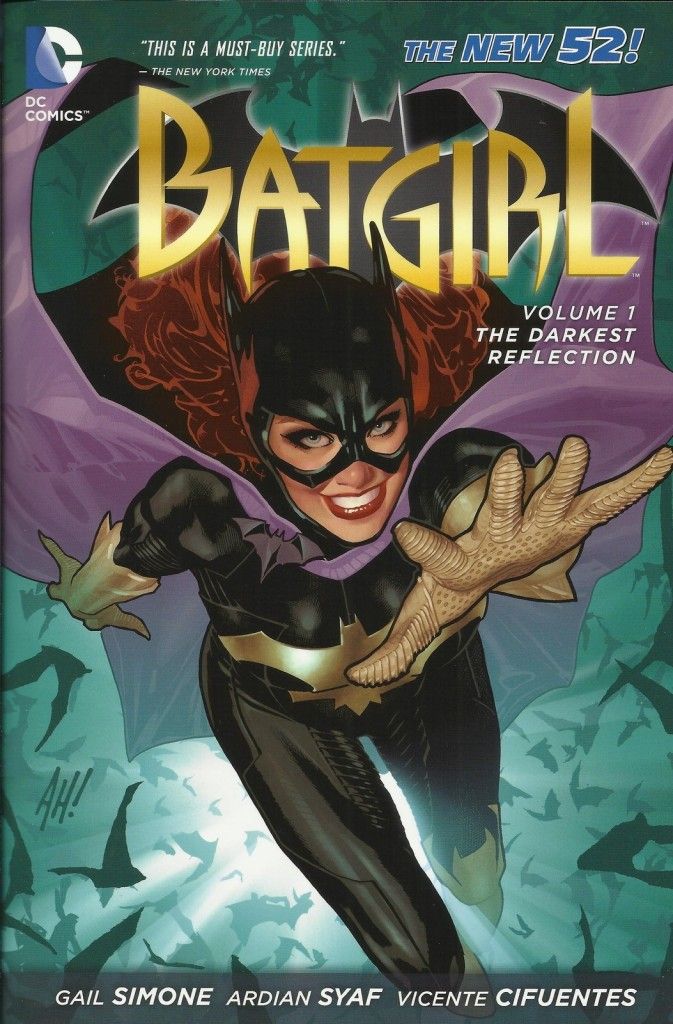The Internet hand-wringing was set to overdrive when it was announced writer Gail Simone had been summarily dismissed from Batgirl. By email, no less. Virtually every comics news site and blog chimed in, usually followed by a flurry of reader comments. However, freelance creators are let go from comics all of the time. Sure there's usually disappointment, and it's never good when someone loses her job. But what made this the event of the week?
There's a history to this that adds an extra layer of emotion.
Simone is a well-liked creator with a spirited fan base, and she has described Batgirl as a dream job for her. This is the character that hooked her into comics. This is the character she's always wanted to write. Her dream came true, and now it's being taken away. So any human being with at least an average level of empathy is going to feel like this is an unfortunate turn of events for her. This was also largely unexpected, as the series was performing well; Batgirl #14 was No. 17 on Diamond Comic Distributors' November sales chart with an estimated 77,468 copies, although previous issues sold in the 40,ooo to 50,000 range. That's where some shock and indignation comes in. It seems like an unfair decision (although it is of course fully within DC Comics' rights to hire and fire whoever it wants).
Going further back, it becomes clear why this is such a hot button. First is the character herself: When DC announced its lineup last year for the New 52, Batgirl first seemed like a doomed book. It took a well-liked character, the wheelchair-bound Oracle, and restored her ability to walk that she viciously lost at the hands of the Joker in The Killing Joke. This felt like an insensitive move when the disabled in the real world are still waiting for their retcon. "But Professor X regains the ability to walk every other year," some retorted, in the newest version of "everyone does it." Representation in media is an issue that can apply to more than just gender.
The awkwardness of the announcement was eased somewhat by news that Batgirl would be written by Simone. A woman would be writing a comic book with a female lead. Yes, this was actually a big deal and a big relief for fans of the character and for female readers. You see, another issue during the big launch of the New 52 (and there were quite a number, weren't there?) was the serious lack of female creators, which had dropped from 12 percent to 1 percent. That 1 percent basically consisted of Simone herself (artist Amy Reeder was announced as an alternating artist on Batwoman and wouldn't debut until Issue 6). The issues around gender became so heated, it resulted in a tense interaction between DC Co-Publisher Dan DiDio and a fan at a comic book convention, a flurry of editorials, and eventually DC issuing a statement promising to be more sensitive to the issue. More women creators were eventually announced, but interest in how Batgirl would perform remained.
So with all of that pent-up tension, Batgirl actually turned out to be pretty good. It launched with strong sales and positive reviews. Simone's handling of the cured paralysis was actually sensitive, addressing post-traumatic stress disorder, and well-informed, pulling from real-life cases treated in South Africa. That an entertaining superhero comic could come out of all that controversy and debate was probably a miracle and spoke volumes to Simone's skills as a writer. For those that were so invested in the discussions, it seemed like a validation of sorts.
In the end, it really wasn't just another freelance job. Batgirl represented a monthly victory in the ongoing fight against institutionalized sexism in mainstream comics.
But it's not the end for Simone. So instead I choose to celebrate the coming of the graphic novel Leaving Megalopolis by Gail Simone and Jim Calafiore. Fortunately, the odds of Simone firing herself from her own book are low.


